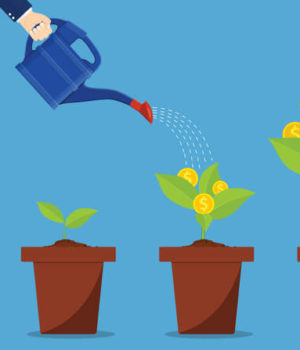Venture capital (VC) invested in Australian startups hit a record US$1.23 billion in the 2018/19 financial year, according to Venture Pulse Q2 2019, the quarterly global VC trends report published by KPMG.
Between April and June 2019, $120 million of startup investment was
recorded in Australia. The number of deals, at 17, was down
Globally, overall venture capital (VC) investment held steady over the April to June 2019 quarter, reaching $52.7 billion. VC deal volume declined for the fifth consecutive quarter, reaching only 3,855 deals, as high valuations and fierce competition – particularly at the seed stage − combined to produce an evening in the pace of deal-making.
What did the Aussie VC investmenr space look like?
Amanda Price, Head of KPMG Australia High Growth Ventures commented: “The past 12 months
“We continue to see greater amounts raised by
“There was some fall off in deal size and volume over the first six months of the year of 2019, something that could be attributed to a pause as investors considered the implications of the Australian federal election.
“However, we’ve also seen Australian VCs close large funds in the same period which would suggest we can expect to see the growth trend of startup investment continue,” she added.
What does the investment in the US look like?
VC investment in the US remained robust during Q2’19, reaching $31.5 billion, compared to $34.4 billion in Q1’19, the result of a strong economy, solid performance of the public markets, and expectations of lower interest rates.
During the quarter, investors diversified their investments across a broad range of industries including logistics, food delivery, aerospace, consumer durables
Meat alternatives, artificial intelligence

The largest deals for the quarter included Flexport ($1 billion) and DoorDash ($600 million) from San Francisco, followed by New York-based automation firm UiPath, which raised $568 million.
During Q2’19, the US saw 23 new unicorns created across fintech (e.g. StockX, iValua, Marqeta, Carta, Bill.com), data management (e.g. Sumo Logic, Druva), cleantech (e.g. Sila Nanotechnologies),
What did the Asian VC space have to offer?
VC investment in Asia remained slow for the second consecutive quarter – reaching just $9.6 billion on 468 deals. The continued slowdown in
A shortage of megadeals contributed to the decline in VC in Asia. At the end of Q2’19, the largest 10 deals in Asia accounted for $4.6 billion in investment. By comparison, in Q4’18, the 10 largest deals accounted for $11 billion.
This likely contributed to the shrinking number of unicorn births in China; in Q2’19; there were no new unicorns in China – compared to 23 in the US.
However, some bright spots remained.
Gurgaon-based OYO Rooms raised $1.1 billion and JD Health (Beijing) raised $1 billion this quarter –
The top five deals were rounded out by Beijing-based Aihuishou which raised $500 million and Hozon which raised $437.7 million. Corporate players remain essential in the capital cycle of Asia’s Venture ecosystem, in particular at later stages. However, after reaching record levels in 2018, corporate venture capital participation dropped in Q2’19.
What global trends should one look out for?
Heading into Q3’19, the trend towards a smaller number of
AI is likely to buck this trend given its almost unlimited potential to cause industry disruption – and the significant amount of attention it is being given by corporate investors. As well, the outlook for IPO’s in the US remains quite positive.
Amanda Price, KPMG Australia’s head of High Growth Ventures added: “Venture capital investment in Australia has jumped by US$1 billion since the 2012/2013 financial
“The success of businesses like Atlassian – which if it was listed in Australia would be one of the top ten companies (by value) on the ASX – shows the potential of startup investment to change the shape of Australia’s future economy.
“As the global figures show, we are in a global innovation race, so there will always be the need for more capital to support smart Australian founders,” she said.






![Learn how to generate more leads in one month than most competitors would in one year! [FREE REPORT]](https://anthillonline.com/wp-content/uploads/2015/08/Capture4-300x194.jpg)

![Learn how to use Instagram as a business tool [FREE INFOGRAPHIC]](https://anthillonline.com/wp-content/uploads/2012/12/nickelbackinstagram-100x75.jpg)
![Networking is for suckers… master Inbound Marketing [FREE REPORT]](https://anthillonline.com/wp-content/uploads/2015/03/inboundreloaded-100x75.png)
![Four Page Digital Marketing Strategy [FREE RESOURCE]](https://anthillonline.com/wp-content/uploads/2015/01/FOUR-PAGE-IMAGE-100x75.png)
![The Facebook Honey Trap with James Tuckerman [CHEAT SHEET]](https://anthillonline.com/wp-content/uploads/2015/11/Screen-Shot-2015-11-26-at-11.34.14-100x75.png)
![How does YouTube recommend videos that you may like to watch? [VIDEO]](https://anthillonline.com/wp-content/uploads/2014/05/ComputerPhile-300x350.jpg)
![Ruslan Kogan: “Other retailers are… asking the government for new taxes” [LivePrice Demo]](https://anthillonline.com/wp-content/uploads/2011/02/ruslan.jpg)

![We’re no strangers to love. You know the rules and so do I. And those rules apply to creating internet memes [VIDEO]](https://anthillonline.com/wp-content/uploads/2012/09/rickastley.jpg)
![Inbound Marketing Reloaded with James Tuckerman [FREE REPORT]](https://anthillonline.com/wp-content/uploads/2015/07/cover-3d-347h-x-253w--253x194.png)
![The Gaddie Pitch in three simple sentences with Antony Gaddie and James Tuckerman [CHEAT SHEET]](https://anthillonline.com/wp-content/uploads/2015/08/GADDIE-PITCH-updated-3D-cover--100x75.png)
![Three easy wins when using LinkedIn with David Hobson [FREE REPORT]](https://anthillonline.com/wp-content/uploads/2015/08/3quick-wins-100x75.png)
![The Alchemy of Negotiation with Matt Lohmeyer [FREE REPORT]](https://anthillonline.com/wp-content/uploads/2015/07/Capture-100x75.jpg)
![New Zealand’s Xero eyes US IPO, further disruption as subscribers increase [INFOGRAPHIC]](https://anthillonline.com/wp-content/uploads/2014/07/sruuuuujana-212x194.png)
![Ever wonder if your ‘content marketing’ is really just crap? You gotta see this! [INFOGRAPHIC]](https://anthillonline.com/wp-content/uploads/2014/08/content-100x75.jpg)
![7 Business Lessons From Game of Thrones [INFOGRAPHIC]](https://anthillonline.com/wp-content/uploads/2014/10/infographic-games-of-thrones-041-100x75.jpg)
![How to build your own Media Empire… In seven steps with Nathan Chan [INFOGRAPHIC]](https://anthillonline.com/wp-content/uploads/2014/10/Nathan-Chan-Infographic-e1413419529176-100x75.jpg)
![5 Business Lessons From Tinder [INFOGRAPHIC]](https://anthillonline.com/wp-content/uploads/2014/10/Tinder-Elegant-Infographic-100x75.jpg)



